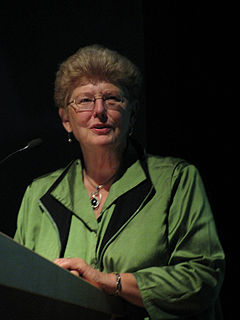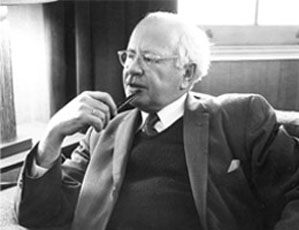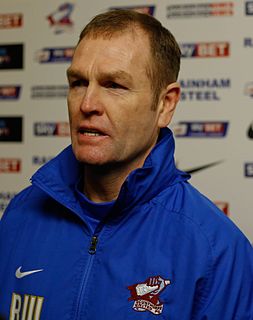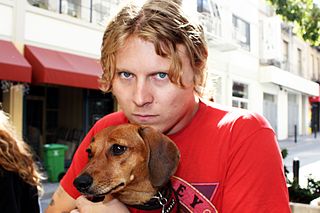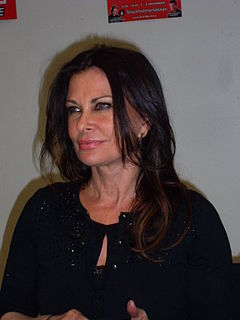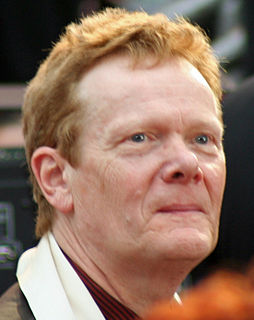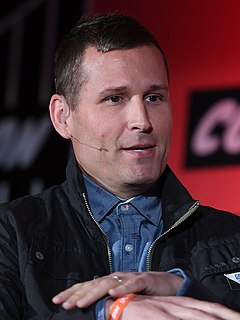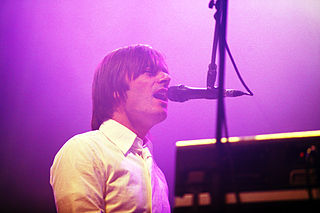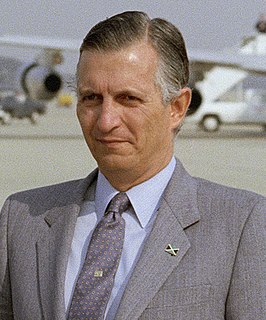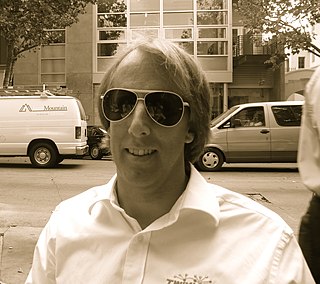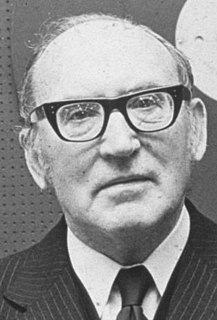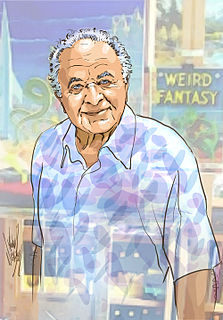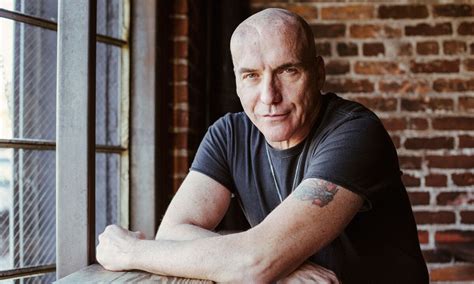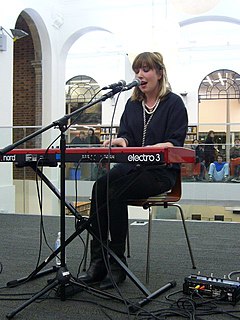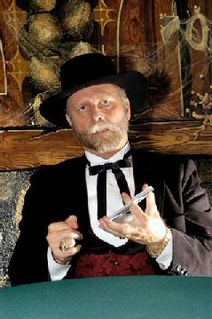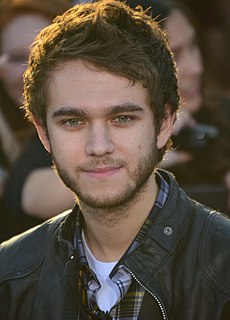Top 877 Electronic Quotes & Sayings - Page 14
Explore popular Electronic quotes.
Last updated on December 22, 2024.
Lulled into somnolence by five hundred years of print, literary studies have been slow to wake up to the importance of MSA (media-specific analysis). Literary criticism and theory are shot through with unrecognized assumptions specific to print. Only now, as the new medium of electronic textuality vibrantly asserts its presence, are these assumptions clearly coming into view.
Technology is incredibly creative and has great potentials; but it is also very seductive in the way it isolates people, in the way it jazzes people up, in the way it makes junkies out of us - junkies who need a constant stimulation, more information, more bells and whistles, more electronic wonders in order not to be bored.
New information and communications technologies can improve the quality of life for people with disabilities, but only if such technologies are designed from the beginning so that everyone can use them. Given the explosive growth in the use of the World Wide Web for publishing, electronic commerce, lifelong learning and the delivery of government services, it is vital that the Web be accessible to everyone.
In our new age of terrifying, lethal gadgets, which supplanted so swiftly the old one, the first great aggressive war, if it should come, will be launched by suicidal little madmen pressing an electronic button. Such a war will not last long and none will ever follow it. There will be no conquerors and no conquests, but only the charred bones of the dead on and uninhabited planet.
We're losing social skills, the human interaction skills, how to read a person's mood, to read their body language, how to be patient until the moment is right to make or press a point. Too much exclusive use of electronic information dehumanises what is a very, very important part of community life and living together.
[Electronic newspapers will bring] plenty of ulcers for journalists because they'll have new deadlines every 60 seconds. It'll be a race to file. On the other hand, because space is infinite there will hopefully be more room for thoughtful pieces, longer pieces, the kind that a journalist wishes he or she could do but doesn't have the space.
I wanted to do is kind of invoke that and then dive into that kind of repetition as a DJ thing because DJing you hear beats, like "boom, boom, boom, bap, bap." You know hip hop, house, techno. So how do you translate between those electronic motifs and the motifs of the landscape itself? That is what I wanted to go for.
Western Civilization has been in a state of decline since the Edwardian age, say 1910. That was the height of Greco-Roman European civilization. Then there was the First World War. That was the beginning of the end. That civilization has been in a decline ever since. But from the American triumphalist point of view our wonderful electronic revolution is really the forefront of an ongoing wonderful civilization.
When I was doing mainly music, I used to stick a microphone out the window, into the countryside, and create a live mix. I wanted to put air in electronic music. I record the sounds of twigs, barks, and stones. I've always been obsessed with the idea of combining the natural and the man-made. It's not because I think the technology is crap, or that I'm trying to work against it, but that juxtaposition is truly beautiful. The question of what is natural and unnatural is very open.
I love Soul, R+B, Electronic, and good pop. Really, the only thing I don't listen to is country and heavy metal. I love Marvin Gaye, John Legend, Al Green, Fat Freddys Drop, Sade, Grace Jones, Bazoo Bijou, Prince, John Lennon, London Grammar, Daft Punk, Dr John, Dusty Springfield, Peggy Lee, Gotye, and on it goes.
An electronic paper has infinite space because you can bring forth as much content as a reader wants. And the resolution of ads is very high. And when you touch the ad you can interact with the advertiser and the paper will take you to the advertiser's Web site and you can get more information. So ideally there should be a better connection between the ads you're shown and what you're actually interested in.
Wardruna is a combination of old and new. I use historical instruments and new and electronic instruments and tools. I use drones and samples to build these huge sounds. Sometimes just a sound can trigger words or melodies. I don't have a romantic notion about the past; with Wardruna I wanted to create something new using something old.
We need to take responsibility for the effect of our environment on our nervous systems, and particularly the nervous systems of our children. No wonder so many of them are diagnosed with all the stuff they're diagnosed with today. Modern technology is a blessing to be sure, but it's also a curse if we allow it to pull us out of our spiritual center. A 24 hour electronic onslaught comes at the expense of our deep humanity and our deepest relationships.
It is captivating, isn't it? England has such a great scene of electronic music, and I think that was very prominent in Pusher, and the nightlife was the beat of the film. I feel what is really great about Pusher is that it wasn't about drugs and guns and strippers. That was just all circumstantial. I felt like it was really about people and how decisions and circumstances can change relationships. Something just happens. Everything changes for a reason.
I am very grateful to the electronic world for making my life easier, but there is something about holding a book - the smell and the world of association. Even when e-books are perfected, as they surely will be, it will be like being in bed with a very well-made robot rather than a warm, soft, human being whom you love.
Notre Dame and Sydney - that was nothing. Notre Dame doesn't have a police station; it is not 1,000 or so feet high. It was a public structure, very easy to access. And Sydney Harbour Bridge was half-and-half: a bridge, in the middle of the night. The World Trade Center was the end of the world. Electronic devices, police dogs.
Essentially, there's a universe inside your brain. The number of connections possible inside your brain is limitless. And as people have learned to have more managerial and direct creative access to their brains, they have also developed matrices or networks of people that communicate electronically. There are direct brain/computer link-ups. You can just jack yourself in and pilot your brain around in cyberspace-electronic space.
We talk about a civilization and love and we're seeing it at the end. So many people around the world are - that whole electronic band that Dostoyevsky imagined of love around the world - that every contribution, every moment of love, every act of kindness feeds that and is like a reservoir for somebody in need to draw upon.
It's an honor for me to close out Mysteryland. In American music history this is hallowed ground. I think electronic music has a lot in common with the spirit of rock and roll and what Woodstock had going on at the time. We are kind of the new kids on the block and this music isn't accepted by everyone so we are still kind of getting into pop culture and I think its appropriate that this festival is here and kicking down the door.
We like the ambiance and atmosphere, and we felt really early that... I mean, of course, Air is an electronic band, but we are doing so many real recordings and the studio is so important for the sound. The acoustics create atmosphere and emotion. Also we want to be independent, we don't want to be obliged to go into a commercial studio and only stay one week because it's really expensive. We want to be able to give a chance to a song, and to spend a lot of time in the studio.
Electronic books are ideal for people who value the information contained in them, or who have vision problems, or who like to read on the subway, or who do not want other people to see how they are amusing themselves, or who have storage and clutter issues, but they are useless for people who are engaged in an intense, lifelong love affair with books. Books that we can touch; books that we can smell; books that we can depend on.
We live in a society in which spurious realities are manufactured by the media, by governments, by big corporations, by religious groups, political groups. I ask, in my writing, 'What is real?' Because unceasingly we are bombarded with pseudo realities manufactured by very sophisticated people using very sophisticated electronic mechanisms.
I think what's made electronic music so fascinating is that it came up through the underground and always moved and pivoted so quickly that you could never keep a handle on it. That continues to happen. Sure, the stuff on the very top moves slower and is marketed for Spotify. But there are still going to be undercurrents that flow freely and move around, simply because there's too much of a base with this music.
His voice was an omnipresent cry in our electronic world. His sharp features, majestic looks, and prancing style a vivid etching on the landscape of our minds. Bob Marley was never seen. He was an experience which left an indelible imprint with each encounter. Such a man cannot be erased from the mind. He is part of the collective consciousness of the nation.
Sure, end-to-end encryption means that whether it's a phone call we're on or an email message we're sending or any form of electronic communication, that the content of that communication is encrypted from your device, such as your phone or PC, unto the other person's device at the other side, wherever they might be on the planet Earth.
Professor Wilkes is best known as the builder and designer of the EDSAC, the first computer with an internally stored program. Built in 1949, the EDSAC used a mercury delay line memory. He is also known as the author, with Wheeler and Gill, of a volume on "Preparation of Programs for Electronic Digital Computers" in 1951, in which program libraries were effectively introduced.
The popular prophets have underestimated how strange the truth can be. The human brain, that 'perfect instrument,' that 'fabulous electronic dance,' can be our open sesame to an infinitely richer life than we have believed possible. The fluent, liberating, creative, healing attributes of the altered states can be incorporated into consciousness. We are just beginning to realize that we can truly open the doors of perception and creep out of the cavern.
The AMA virtually stopped the Rife treatment in 1939, first by threatening the physicians using Rife's instrument, then by forcing Rife into court....During the period 1935 to early 1939, the leading laboratory for electronic or energy medicine in the USA, in New Jersy, was independently verifying Rife's discoveries...(this) laboratory was "mysteriously" burned to the ground.....Rife's treatment was ruthlessly suppressed by the AMA's Morris Fishbein.
All my favorite artists are downtempo - Portishead, Burial, a lot of 1990s trip-hop. Some people are saying that I'm trying to help with the trip-hop revival that's possibly going on, but I'm not aware of other artists that are necessarily doing that. But if they are, that's fantastic. It's a great medium of electronic music. There's a lot of emotion - it's good for soundtracking a late-night drive.
Erwin Schrodinger has explained how he and his fellow physicists had agreed that they would report their new discoveries and experiments in quantum physics in the language of Newtonian physics. That is, they agreed to discuss and report the non-visual, electronic world in the language of the visual world of Newton.
Where are the young people today? Why are they allowing some of the things that are happening in their country? I am really upset about that. I feel that they are burying their heads in the sand of electronic games and television. They don't want to know. Maybe they realize that their yuppie parents who protested Vietnam have turned on their ideals and are now struggling to buy a Lexus or whatever. These kids don't know what to revolt against, so they just completely ignore it, which is a very frightening thing.
Once I heard about the electronic voting machines, and how they weren't gonna be audited, and no one would be able to go in and verify what the votes were. And then the exit poll thing - wasn't that kind of weird? How the exit polls didn't match up to the voting... I feel like, you know, they dropped a couple lines of code in here and there, and swung a couple states in their direction.
I use the Clarisonic electronic skin cleansing system. It's great for removing excess oil and make-up and leaves my face feeling really smooth and clean. Then I apply Avon Anew Rejuvenate Day Revitalising Cream and Creme de la Mer Eye Concentrate. I think eye cream is so important - it keeps me looking young and prevents wrinkles.
Vague promises of savings from cutting waste, enhancing prevention and wellness, installing electronic medical records and improving quality are merely ‘lipstick’ cost control, more for show and public relations than for true change... Savings will require changing how doctors think about their patients: Doctors take the Hippocratic Oath too seriously, “as an imperative to do everything for the patient regardless of the cost or effects on others.
Capital burns off the nuance in a culture. Foreign investment, global markets, corporate acquisitions, the flow of information through transnational media, the attenuating influence of money that's electronic and sex that's cyberspaced, untouched money and computer-safe sex, the convergence of consumer desire--not that people want the same things, necessarily, but that they want the same range of choices.
The major rock instruments and classical instruments were designed for performance, for sharing the music with an audience, and then later people put microphones on them and recorded them. But for electronic music, the opposite was true - they're designed in laboratories, and later, we tried to put them on stage.
I think that 99% of the snipers who take shots at me from electronic foxholes also realize they could never withstand the sort of public disparagement, nor the revelation of so many personal details, that I've endured for years and still remain as impenitent, obnoxious, and ready to argue all critics into the dirt as I am. I think this also jacks up their hatred level, because they realize they'd never be so strong-willed.
I just think we need to find a way, because we don't dispose of them very well; they have very bad chemicals in them. If we could just find a way, maybe start at a small step with eliminating batteries perhaps in small electronic devices, and then possibly in the future go bigger, that would be great.
Sometimes, because of its immediacy, television produces a kind of electronic parable. Berlin, for instance, on the day the Wall was opened. Rostropovich was playing his cello by the Wall that no longer cast a shadow, and a million East Berliners were thronging to the West to shop with an allowance given them by West German banks! At that moment the whole world saw how materialism had lost its awesome historic power and become a shopping list.
It seems to me the book has not just aesthetic values - the charming little clothy box of the thing, the smell of the glue, even the print, which has its own beauty. But there's something about the sensation of ink on paper that is in some sense a thing, a phenomenon rather than an epiphenomenon. I can't break the association of electric trash with the computer screen. Words on the screen give the sense of being just another passing electronic wriggle.
Composers are influenced by all the important music in their lives - and I suppose that since radio started playing popular music, that's as likely to be The Beatles or Aphex Twin as it is to be Verdi or Ravel. They'd be strange teenagers if they didn't. But cross-pollinating happens too - Aphex Twin did more interesting things with electronic music than most trained composers, who seemed to approach samplers with undue caution and reverence in those early days.
A comic will always be more 'personal' than a DVD or CD, both of which require electronic 'players' to decode their content. With comics, the reader is the player so the engagement with the material is always more fundamental and dynamic. Reading comics is a much less passive activity than consuming CDs and DVDs.
I don't want to be a slave to electronic devices. I don't want to be connected to my friends. I don't want to send snapshots of my dog and cute pictures of my family life to my friends and family. I don't want to be liked, by pushing a button. I use all of this technology to basically replace devices that I had in the past which worked just fine.
Honestly, I've been reading a lot of books on visual art. I've been reading a lot of books by Olivia Lang, I've been listening to a lot of folk and singer-songwriter music, but also a lot of electronic and really hard techno. I'm just trying to create something that pulls from everywhere and that hopefully feels unique.
I was listening to a lot of really early house music tracks. Like Chicago house and Detroit. And Marshall Jefferson has a track probably from 1980 - somewhere around there - that doesn't actually have any electronic instruments, no drum machines, nothing. Just a drummer and a piano player and they're playing this house music, but they're actually playing it. I really love that aesthetic and wanted to bring that into the album.
I think if the content is good and the content is interesting, the at home viewer will watch it for as long as the story is interesting thus the responsibility for making the story interesting falls on the shoulders of the reporter or the producer. Then I'm disappointed that producers have felt that television can only be told in 59 second story bursts because we've become, it's become journalism based on MTV, video electronic editing and cutting.
One of the things that's attractive about cyberspace is that it can be construed as no threat. If you see it through the video game keyhole, the amusement keyhole, the entertainment keyhole, it is no threat. If you see it through the LSD keyhole, the consciousness-expanding keyhole, it's like electronic drugs: it is a threat.
News at Work is a vivid, inside look at the collision of print journalism and electronic media. Based on close access to the leading news organizations in Buenos Aires, Boczkowski documents how contemporary journalism is caught in the grip of emulation; this spiral of imitation exacerbated further by global news media and their intensifying homogenization. The portrait of this transformation of the news is both fascinating and deeply worrying, and is guaranteed to provoke debate.
I am at a loss to figure out how to rid my e-mail of those bottom-feeders of the electronic world, the generators of spam.... If I were Emperor of the World, I would lock all the spammers in a room and force them to watch nothing but TV commercials for the rest of their miserable lives, and I would condemn the people who respond to spammers to do nothing but clean the toilets in this room.
The time would not pass. Somebody was playing with the clocks, and not only the electronic clocks but the wind-up kind too. The second hand on my watch would twitch once, and a year would pass, and then it would twitch again. There was nothing I could do about it. As an Earthling I had to believe whatever clocks said -and calendars.
The car as we know it is on the way out. To a large extent, I deplore its passing, for as a basically old-fashioned machine, it enshrines a basically old-fashioned idea: freedom. In terms of pollution, noise and human life, the price of that freedom may be high, but perhaps the car, by the very muddle and confusion it causes, may be holding back the remorseless spread of the regimented, electronic society.
We've clearly entered a period in which the analog of text is no longer important or relevant. All text will be electronic. I accept that fact. My house has thousands of books in it, and I've started to look at them completely differently. They now seem to me to be like antiquarian objects. Their use value has become negligible to me because I'm perfectly happy to read on an e-reader.
I've always dreamed of having an album. The problem is that it's just very difficult to make an album nowadays because through technology, music shifts so fast, especially electronic music. Once you make five songs, the first one you did is already old and you wished you would have put it out right away. So that's kind of the difficult part.
When I was in London I found house music and techno, and I love that s - t. It's my go-to music. It's the closest for me to the old funk of James Brown and the repetitive dance music that I like from the soul music. I'd love to do a live album, like a little bit old school but still progressive, influenced maybe by more electronic music. I like everything, but I don't know anything about music. So it comes in to a lot of different ingredients.
I would say the first key concept is that, in terms of technological and communication progress in human history, the Internet is basically the equivalent of electronic telepathy. We can now communicate all the time through our little magic smartphones with people who are anywhere, all the time, constantly learning what they're thinking, talking about, exchanging messages. And this is a new capability even within the context of the Internet.
The planet has a kind of intelligence, it can actually open a channel of communication with an individual human being. The message that nature sends is, transform your language through a synergy between electronic culture and the psychedelic imagination, a synergy between dance and idea, a synergy between understanding and intuition, and dissolve the boundaries that your culture has sanctioned between you, to become part of this Gaian supermind
